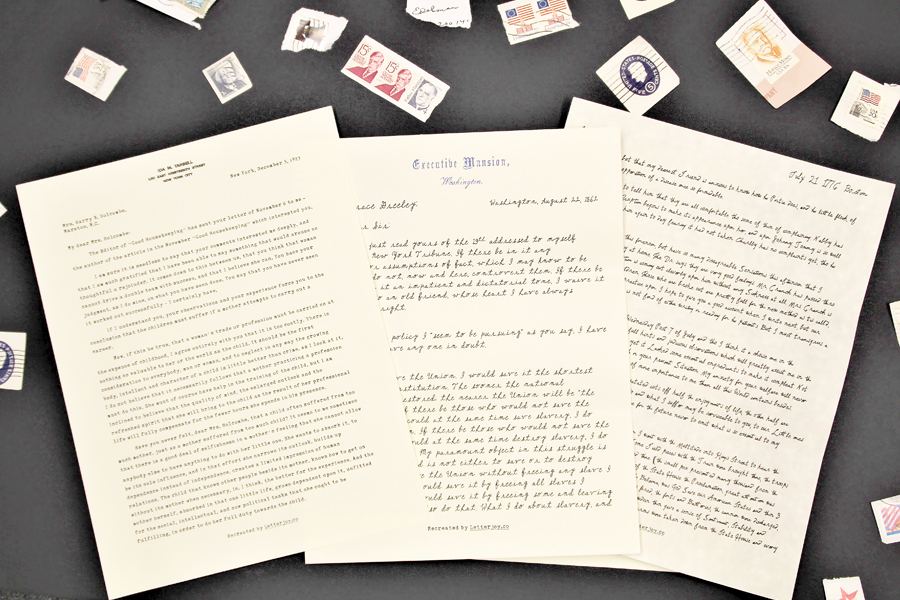Don’t count Michael Sitver among recent college graduates worried about finding a job.
The 22-year-old entrepreneur earned a political science degree from the University of Chicago in June, and he immediately turned his attention to a burgeoning full-time career of his own making: leading a company built on his passion for history and the U.S. Mail.
In fact, Letterjoy, the business Sitver launched in 2017, has been a full-time affair for more than a year, and it’s growing steadily as subscribers pay to receive a weekly stamped envelope containing a historical letter reflecting themes such as Supreme Court battles, presidents and the press, and Civil War spies.
“I’ve always loved mail,” Sitver said. “I was that child who would excitedly go to the mailbox every day to see what was there.”
That eager anticipation continued into his 20s, but opening his mailbox increasingly led to a sense of, well, emptiness. At the same time, as his studies led him to delve into letters written by prominent figures such as Abraham Lincoln, Winston Churchill, Clara Barton and Albert Einstein, he was inspired to turn disappointment into delight for those of all ages who enjoy receiving meaningful mail.
Sitver has assembled a team of 10 — researchers, designers and administrators among them — that currently mails 10,000 letters each week, either newly typewritten or handwritten, depending on the original era, to ensure readability. Letterjoy also includes notes about context — who the writer and recipient were, and what events were happening at the time.
Valerie Mercer of Flovilla, GA, contacted Letterjoy after purchasing a six-month subscription as a Christmas gift for her father, Larry Smith, a retired judge and a history buff.
“He absolutely loved each letter,” Mercer said. “My dad is losing his sight as he progresses to 77, but the letters were motivation for him to focus and read and enjoy.”
Letterjoy tends to avoid direct connections to current events, although in the wake of the 2018 massacre at Tree of Life Congregation in Pittsburgh, Sitver felt compelled to re-create President George Washington’s 1790 letter to a Rhode Island synagogue, expressing hope that the newly formed United States would treat its citizens with respect and tolerance.
Sitver said he heard from many customers — via email, tweets and, yes, even letters — who told him: “This was what I needed this week.”
